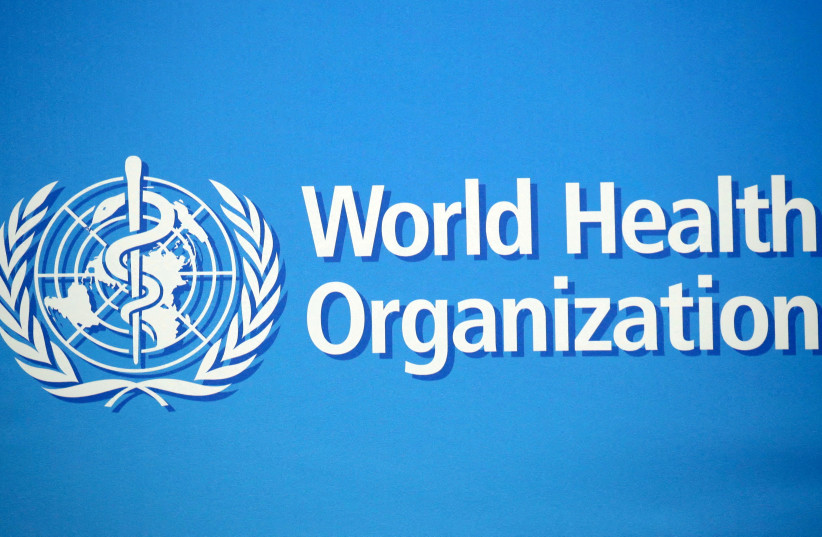After COVID-19 allegedly spread from mammals to humans in China in late 2019 and killed at least six million people (and nearly 11,000 Israelis), news of any new viral zoonotic disease causes jitters.
The US Centers for Disease Control and Prevention (CDC) announced concern on Tuesday about an unusual outbreak of monkeypox in the United Kingdom, suggesting that this virus – almost unknown to the public – has spread to other countries.
“We do have a level of concern that this is very different from what we typically think of from monkeypox. And I think we have some concern that there could be spread outside the UK,” a senior CDC official was quoted as saying.
The Health Ministry in Jerusalem said it was “aware” of monkeypox virus and was working on a comment, however, none was received by press time.
Seven confirmed and one probable case of monkeypox, which is very rare outside Central and West Africa, have been discovered in England since the beginning of this month. In Africa, monkeypox has been fatal in about one in 10 cases, with severe disease and death more likely among children.

While one of those infected individuals had recently traveled to Nigeria, where monkeypox is endemic, the others appear to have been infected in their home countries. According to the World Health Organization (WHO), four of the confirmed cases are homosexual or bisexual and were likely infected in London.
Monkeypox is a zoonosis (spread by animals) that can be transmitted to humans by droplet exposure via exhaled large droplets and by contact with infected skin lesions or contaminated materials. The incubation period of monkeypox is usually from six to 13 weeks, and the symptoms usually pass without treatment with two or three weeks. However, symptoms can be severe, and skin lesions can be very itchy and painful. Contact with live and dead animals through hunting and eating wild game or bush meat are known risk factors, according to the WHO.
The UN organization stated that anyone with suspected monkeypox should be investigated and isolated with supportive care during the presumed and known infectious period. However, the WHO did not recommend any restriction in travel to or trade with the United Kingdom based on currently available information.
Dr. Yuval Schwartz at Jerusalem’s Shaare Zedek Medical Center and Prof. Eli Schwartz, an infectious disease expert at Sheba Medical Center in Tel Hashomer, reported in the journal PubMed Central a case of monkeypox in an Israeli man who returned to Israel in 2018 after a long stay in Nigeria.
“He is well today.” Schwartz told The Jerusalem Post. “Monkeypox is very different from COVID-19. One has to be very close to an infected person to get it. You can’t compare the two.”
The Shaare Zedek infectious disease expert added, “The patient told us he was infected by rats in Nigeria. The smallpox vaccine hasn’t been given since it was eradicated in the world in 1980. As an inductee in the Israel Defense Forces, I and my peers were among the last to get the shot. With the news from the WHO and CDC about cases in London, we heard for the first time that it might be sexually transmitted.”
Monkeypox has symptoms similar to but milder than smallpox. In addition to flu-like symptoms, monkeypox infection triggers a distinctive rash. Many conditions can cause rashes but the monkeypox rash has some unusual features, notably that vesicles can form on the palms of the hands.
The virus was first discovered in monkeys in 1958, and in humans in 1970. Almost 50 cases were reported between 1970 and 1979, with more than two-thirds of those being from Zaire. The other cases originated from Liberia, Nigeria, Ivory Coast and Sierra Leone. By 1986, more than 400 cases in humans were reported.
Currently, there is no proven, safe treatment for monkeypox virus infection. However, there is a vaccine that was licensed in the US two years ago for people 18 and older to protect against smallpox and monkeypox. A second vaccine reportedly protects against smallpox and is thought to offer some protection against monkeypox. But both vaccines are licensed only for people considered at high risk of contracting the disease.
In humans, the symptoms of monkeypox are similar to but milder than the symptoms of smallpox. Monkeypox begins with fever, headache, muscle aches and exhaustion. The main difference between symptoms of smallpox and monkeypox is that monkeypox causes lymph nodes to swell, while smallpox does not.
